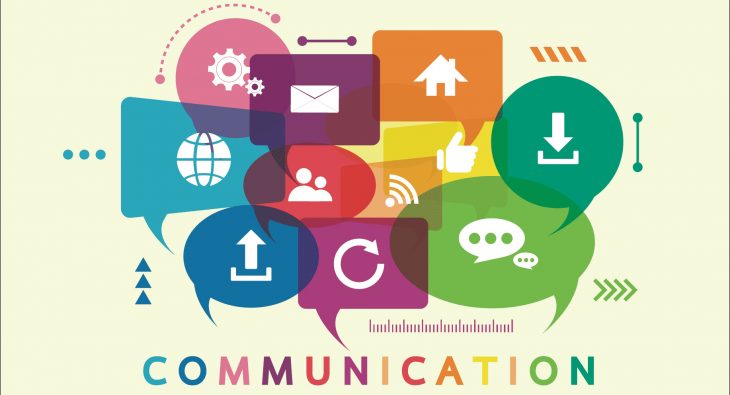
Communication is an essential aspect of human interaction, allowing us to connect, exchange ideas, and build relationships. From verbal conversations to written messages, communication takes various forms and plays a crucial role in our personal and professional lives. In this article, we will explore ten fascinating facts about communication that shed light on its significance and intricacies.
Communication is Universal
Regardless of cultural background or language spoken, communication is a universal phenomenon. While the specific modes and customs of communication may differ across cultures, the fundamental need to convey thoughts, feelings, and information remains constant. Communication is an innate human trait that transcends barriers and fosters understanding.
Non-Verbal Communication Speaks Volumes
Communication extends beyond words. Non-verbal cues such as facial expressions, body language, and gestures contribute significantly to conveying messages. In fact, studies show that a substantial portion of communication, approximately 55%, is non-verbal. These non-verbal signals can often reveal true feelings and intentions, even when spoken words may suggest otherwise.
Effective Listening is Crucial
Communication is a two-way process that involves both speaking and listening. While speaking gets much of the attention, listening is equally important. Effective listening allows us to comprehend messages accurately, empathize with others, and respond thoughtfully. It involves not only hearing the words but also understanding their meaning, context, and underlying emotions.

Communication Technology Evolves Constantly
In today’s digital age, communication has been revolutionized by technology. From the invention of the telegraph to the advent of smartphones and social media platforms, communication tools have continually evolved, making information exchange faster and more accessible. These technological advancements have reshaped the way we connect and transformed the global communication landscape.
Cross-Cultural Communication Requires Sensitivity
As the world becomes increasingly interconnected, cross-cultural communication skills are essential. Different cultures have unique communication styles, norms, and expectations. To communicate effectively across cultures, it is crucial to be sensitive to cultural differences, adapt one’s approach, and embrace diversity. Cultivating cultural competence allows for smoother interactions and fosters respect and understanding.
Communication is Not Just Verbal
Verbal communication, while significant, is only one aspect of the broader communication spectrum. Other forms of communication include written communication, visual communication through images and graphics, and even silence or absence of communication. Each of these modes carries its own nuances and impacts the way messages are transmitted and received.

Communication is Key in Leadership
Effective leaders recognize the importance of communication in inspiring and motivating others. Clear and concise communication enables leaders to articulate their vision, delegate tasks, provide feedback, and foster collaboration. Strong communication skills are a hallmark of successful leaders, as they enable the building of trust and alignment among team members.
Active Communication Enhances Relationships
Healthy relationships thrive on open and active communication. By expressing thoughts, emotions, and needs openly, individuals can build trust, resolve conflicts, and deepen their connections. Active communication involves both expressing oneself honestly and listening attentively, creating an environment of mutual understanding and empathy.
Communication Can Be Learned and Improved
While some individuals may possess natural communication abilities, effective communication is a skill that can be learned and refined through practice and self-awareness. Various techniques, such as active listening, assertiveness, and clarity of expression, can enhance one’s communication abilities. Continuous learning and seeking feedback contribute to ongoing improvement in this vital area.

Communication Shapes Organizational Culture
Within organizations, communication plays a pivotal role in shaping culture and driving success. Clear and transparent communication channels foster a positive work environment, promote collaboration, and facilitate the sharing of ideas and knowledge. On the other hand, poor communication can lead to misunderstandings, low morale, and hindered productivity. Organizations that prioritize effective communication enjoy higher employee engagement and overall performance.
Conclusion
Communication lies at the heart of human connection and understanding. Its universal nature, encompassing both verbal and non-verbal elements, underscores its significance in our lives. As technology continues to advance, embracing cross-cultural sensitivity and refining communication skills become increasingly important. Whether in personal relationships or professional settings, effective communication paves the way for stronger connections, enhanced collaboration, and shared success.
Frequently Asked Questions (FAQs)
How can I improve my communication skills?
Improving communication skills involves active listening, clear expression, and continuous learning. Practice effective listening, seek feedback and develop self-awareness to refine your communication abilities.
What are some common barriers to effective communication?
Barriers to effective communication include language barriers, lack of attention or focus, emotional barriers, cultural differences, and inadequate listening skills. Identifying and addressing these barriers can enhance communication.
How does technology impact communication?
Technology has revolutionized communication, making it faster and more accessible. From smartphones to social media, technology provides various platforms for instant messaging, video calls, and sharing information globally.
How does communication affect teamwork in organizations?
Effective communication is vital for teamwork in organizations. Clear and open communication channels foster collaboration, resolve conflicts, and promote trust and understanding among team members.
Can communication skills be taught in schools?
Yes, communication skills can be taught and cultivated in schools. Incorporating communication-focused curricula, providing opportunities for public speaking, and fostering a supportive learning environment contribute to developing effective communication skills in students.
Was this page helpful?
Our commitment to delivering trustworthy and engaging content is at the heart of what we do. Each fact on our site is contributed by real users like you, bringing a wealth of diverse insights and information. To ensure the highest standards of accuracy and reliability, our dedicated editors meticulously review each submission. This process guarantees that the facts we share are not only fascinating but also credible. Trust in our commitment to quality and authenticity as you explore and learn with us.
